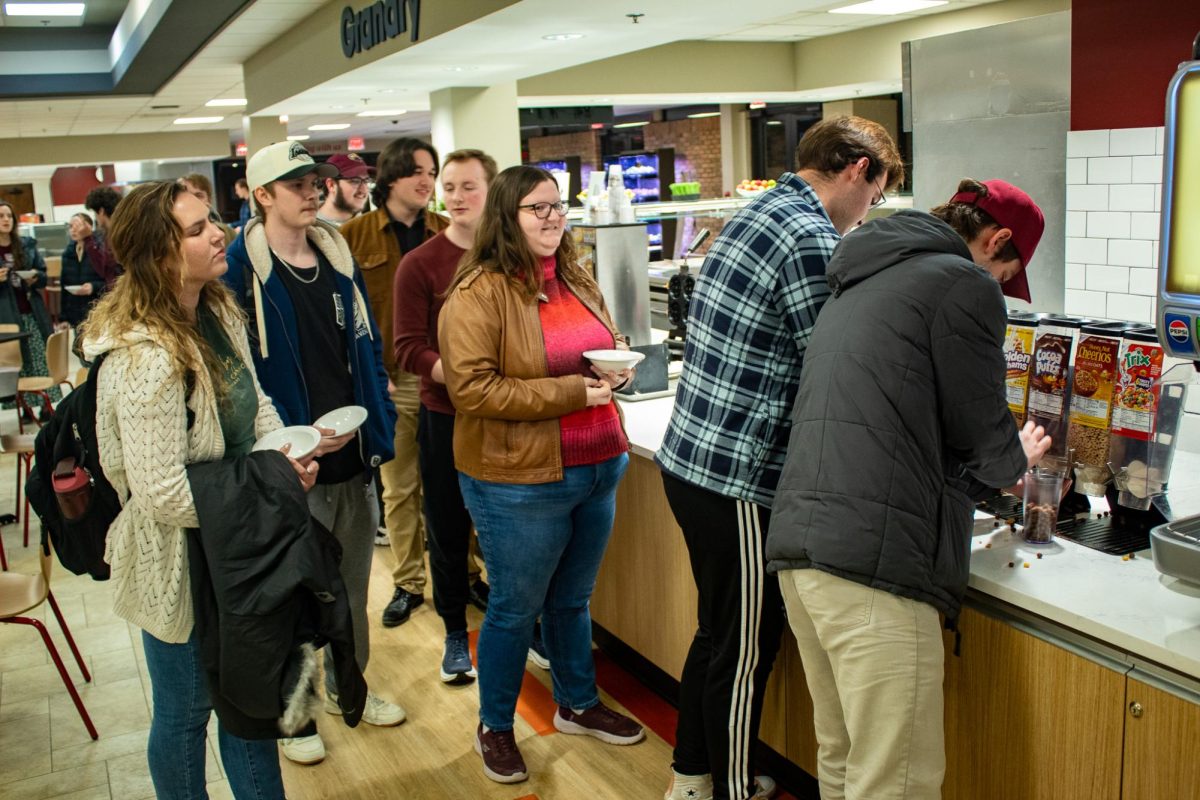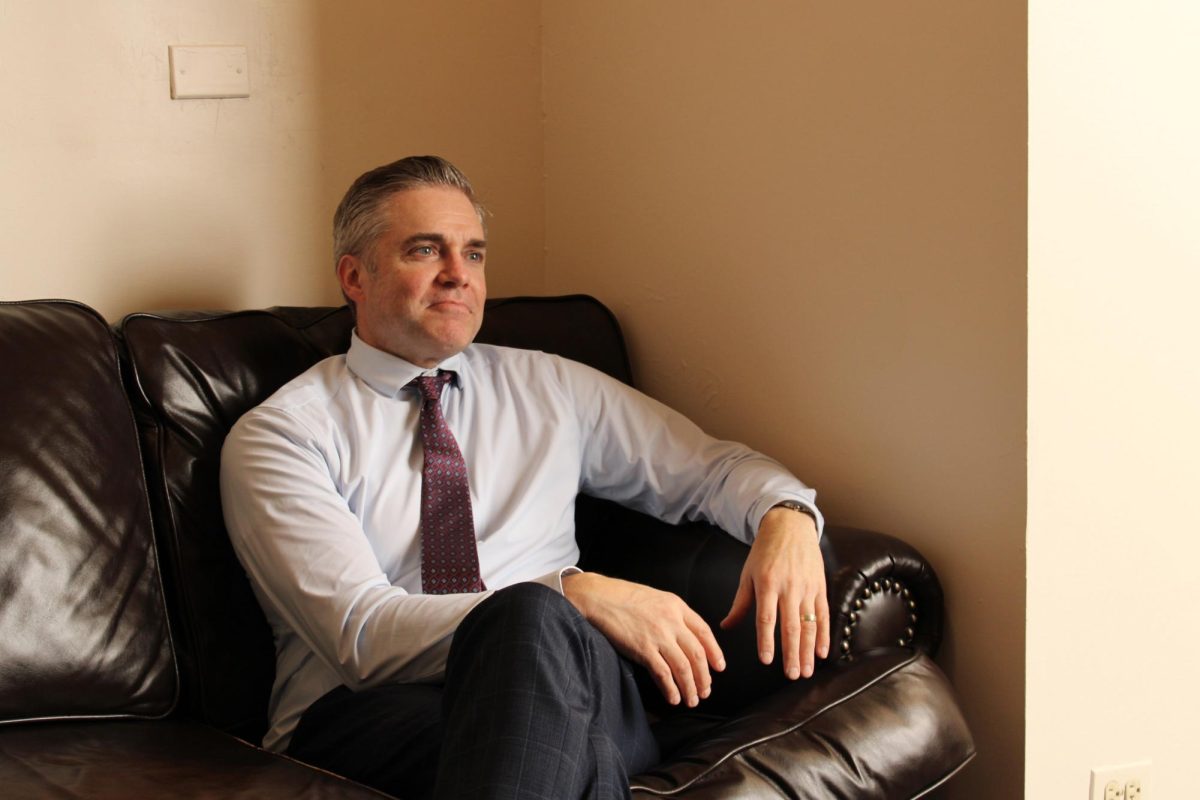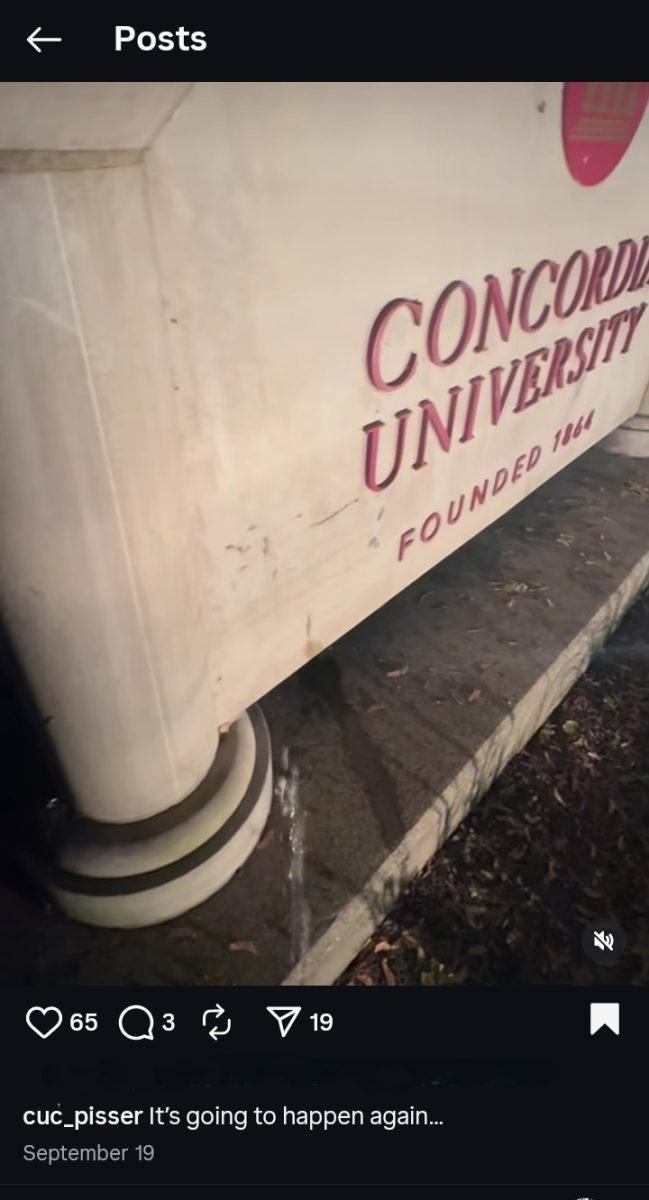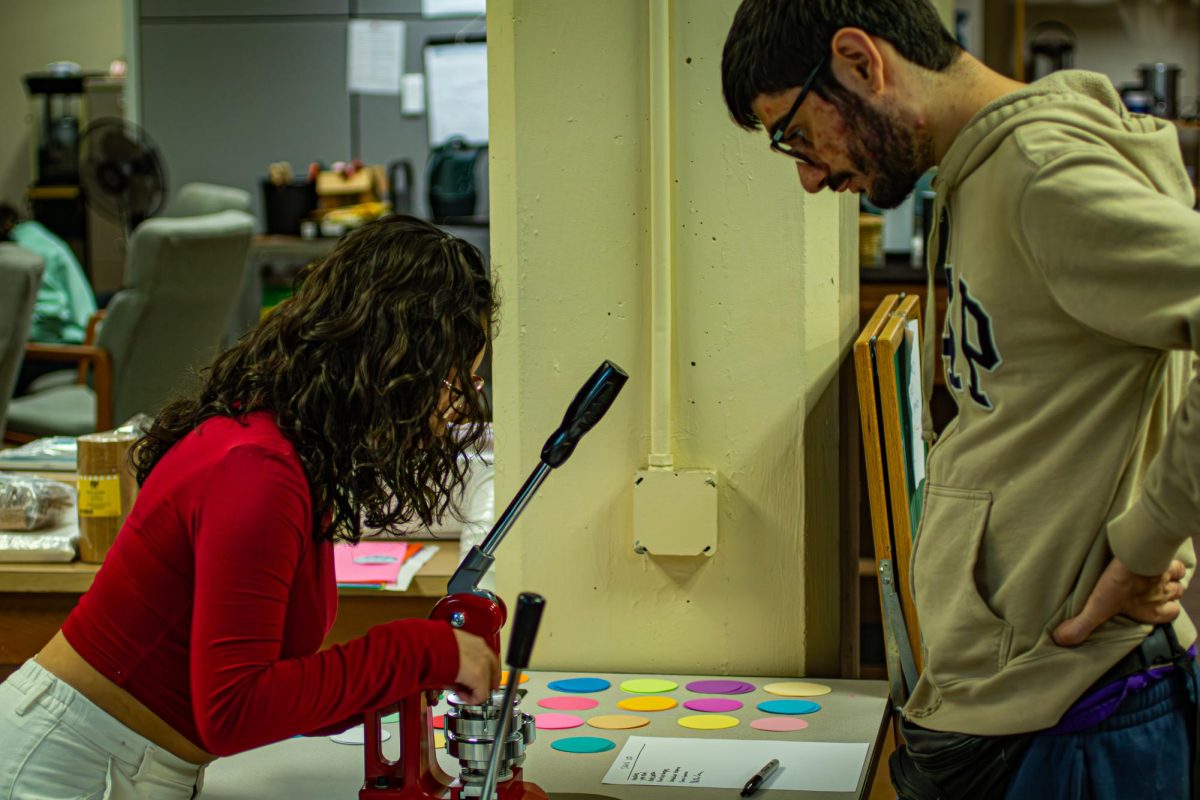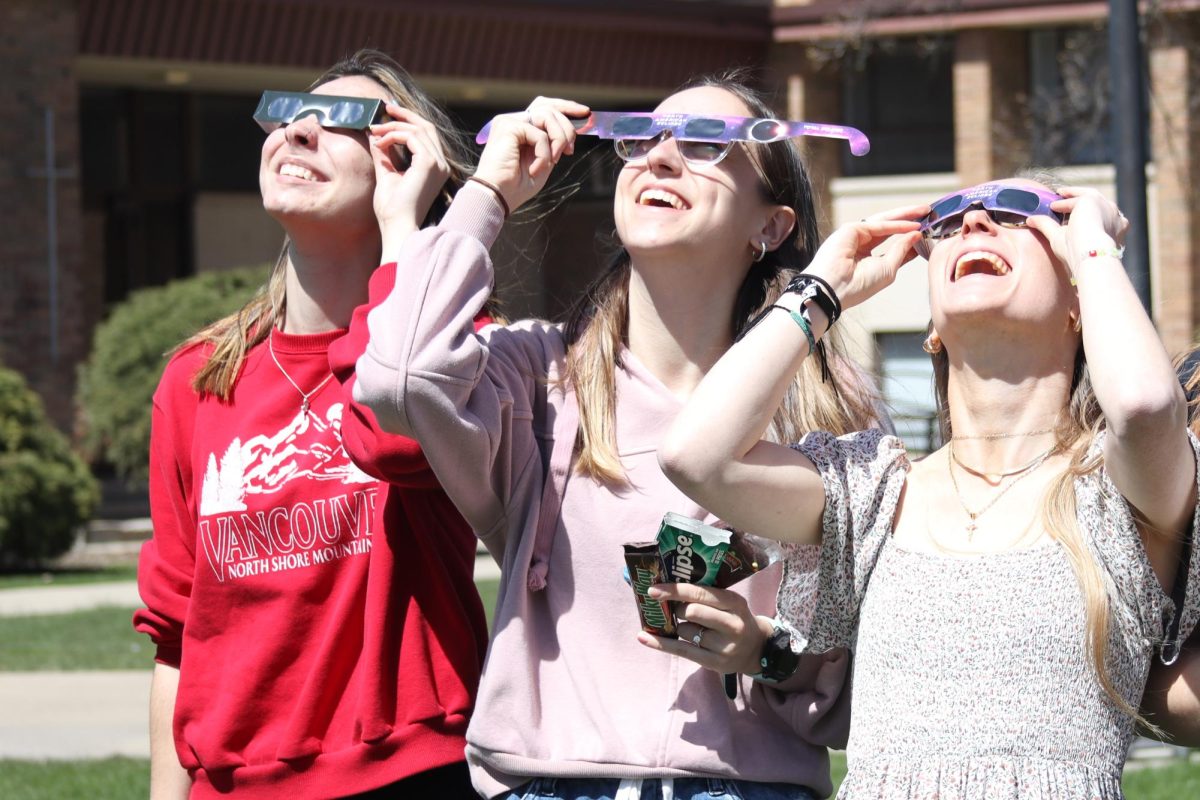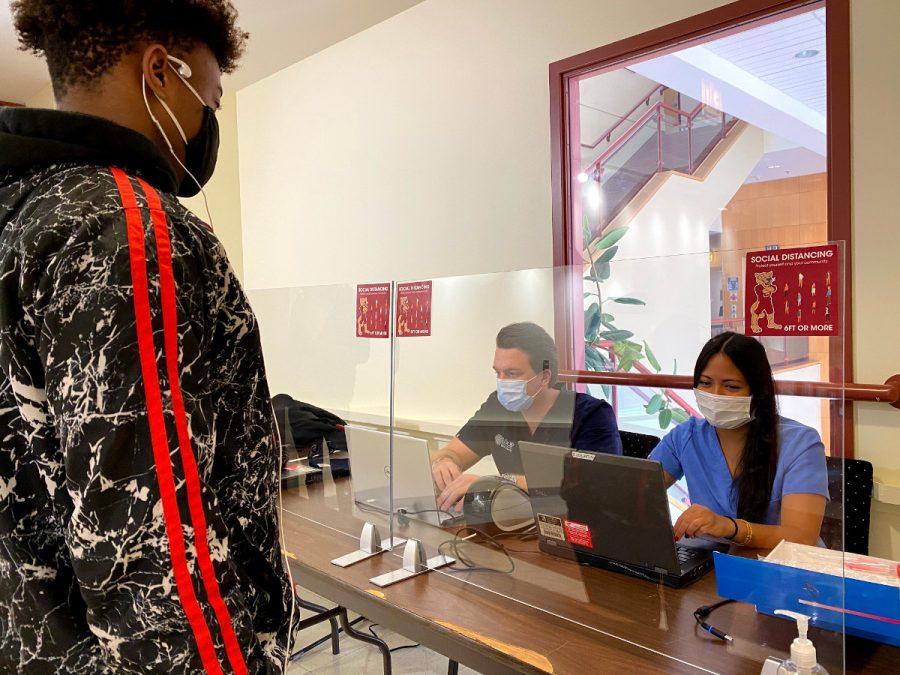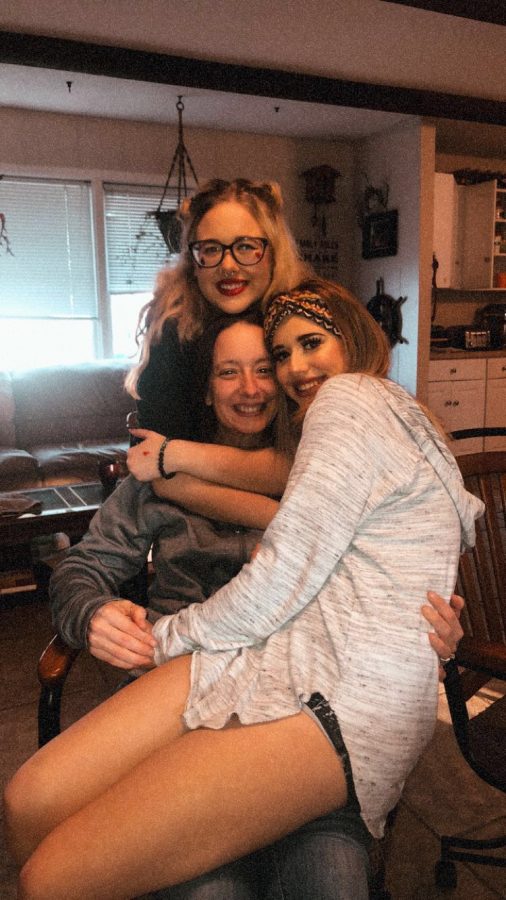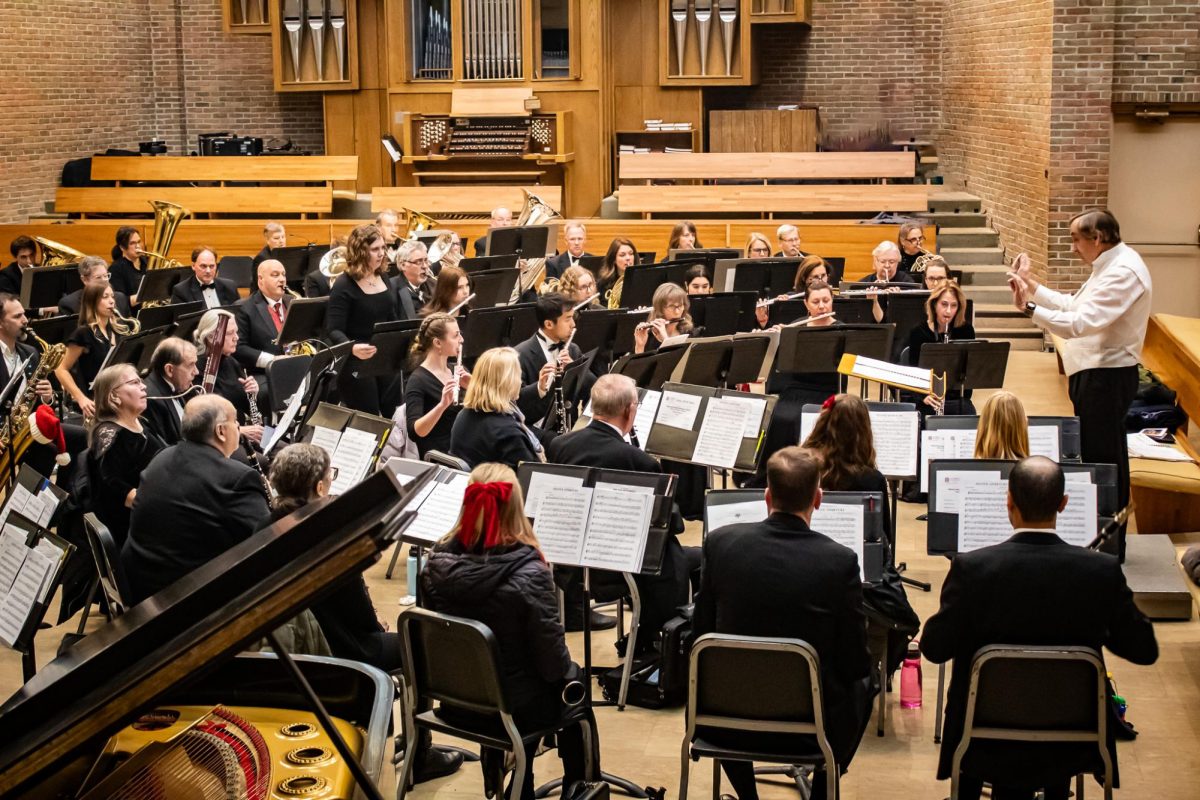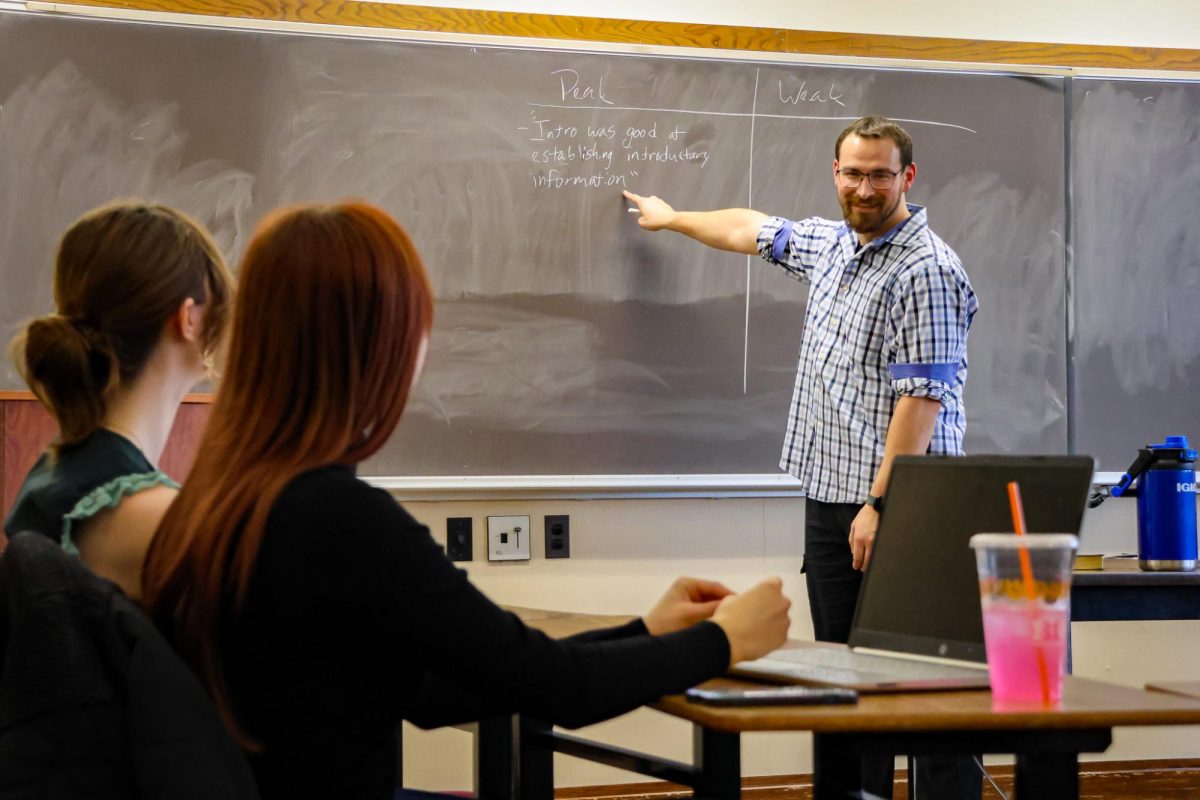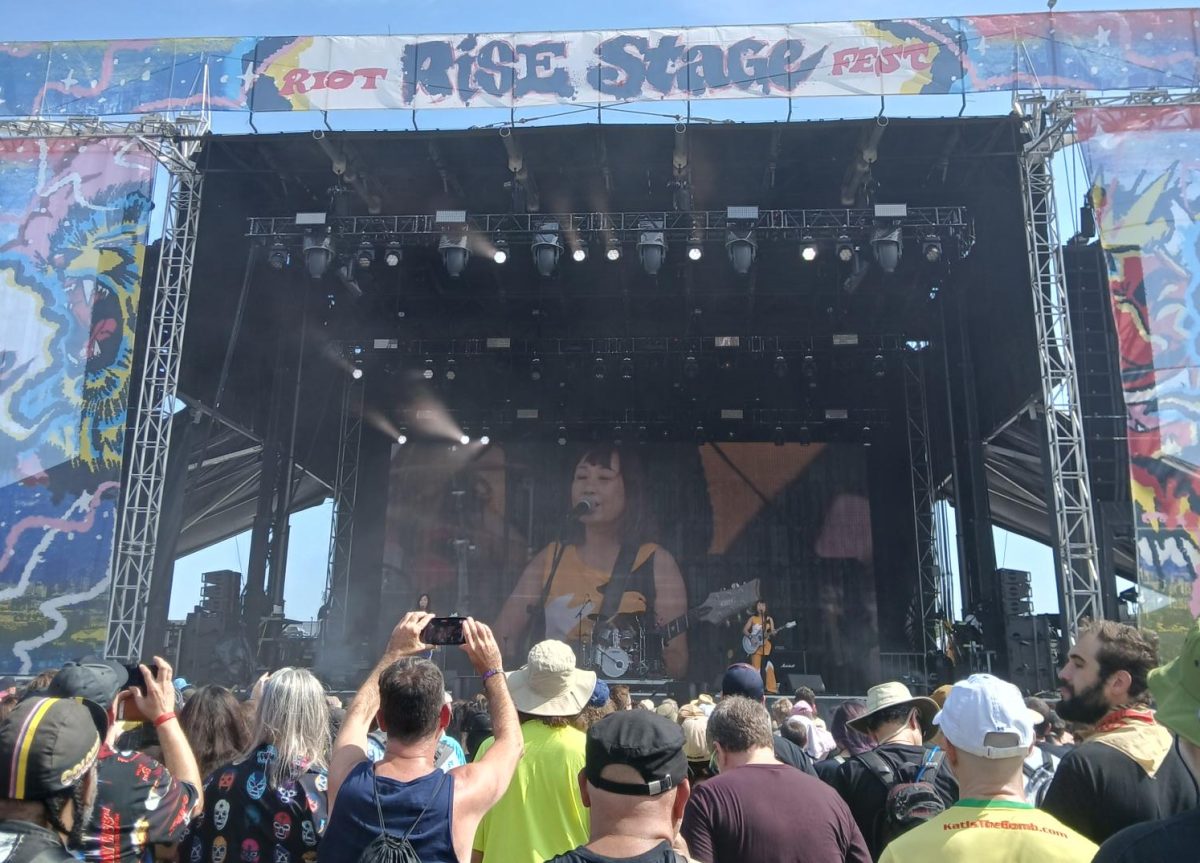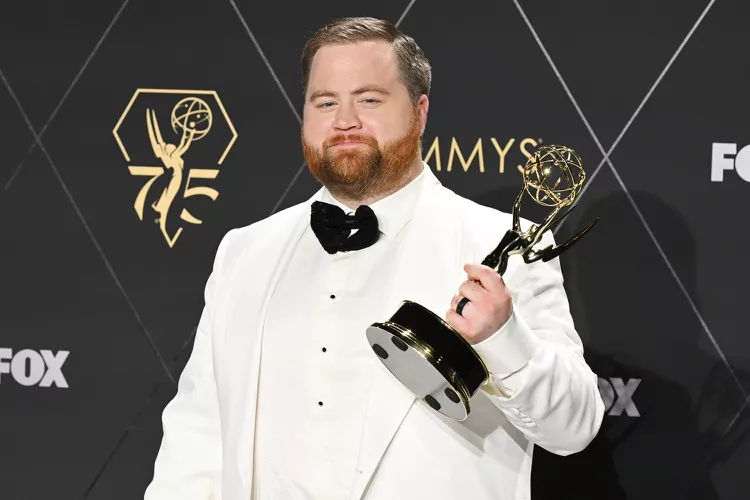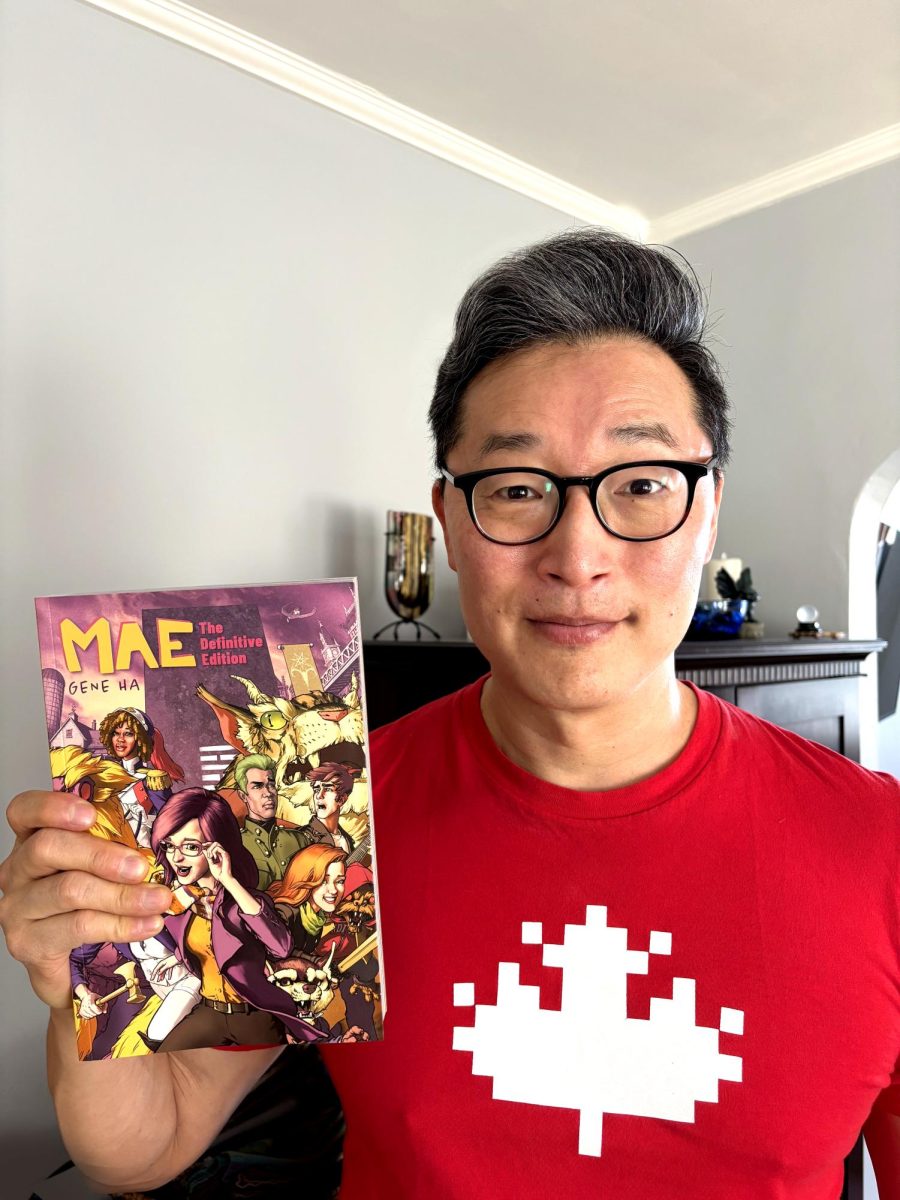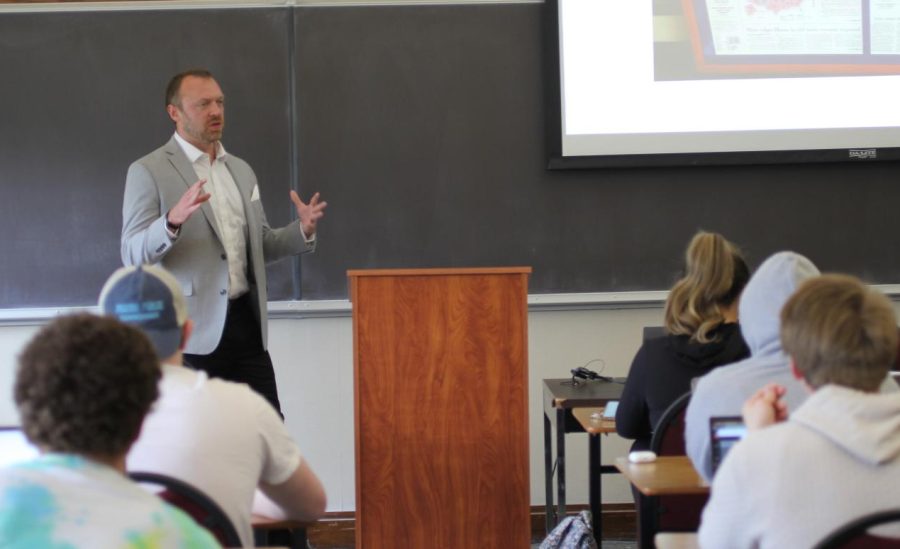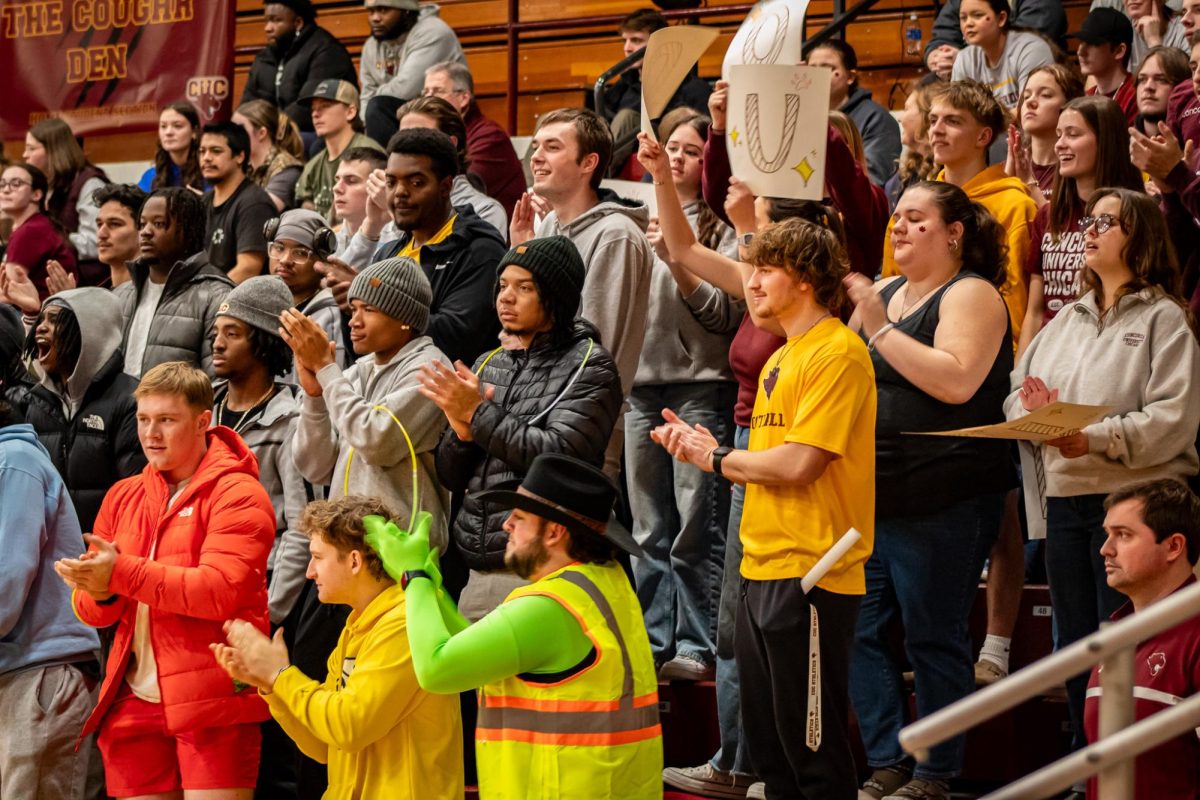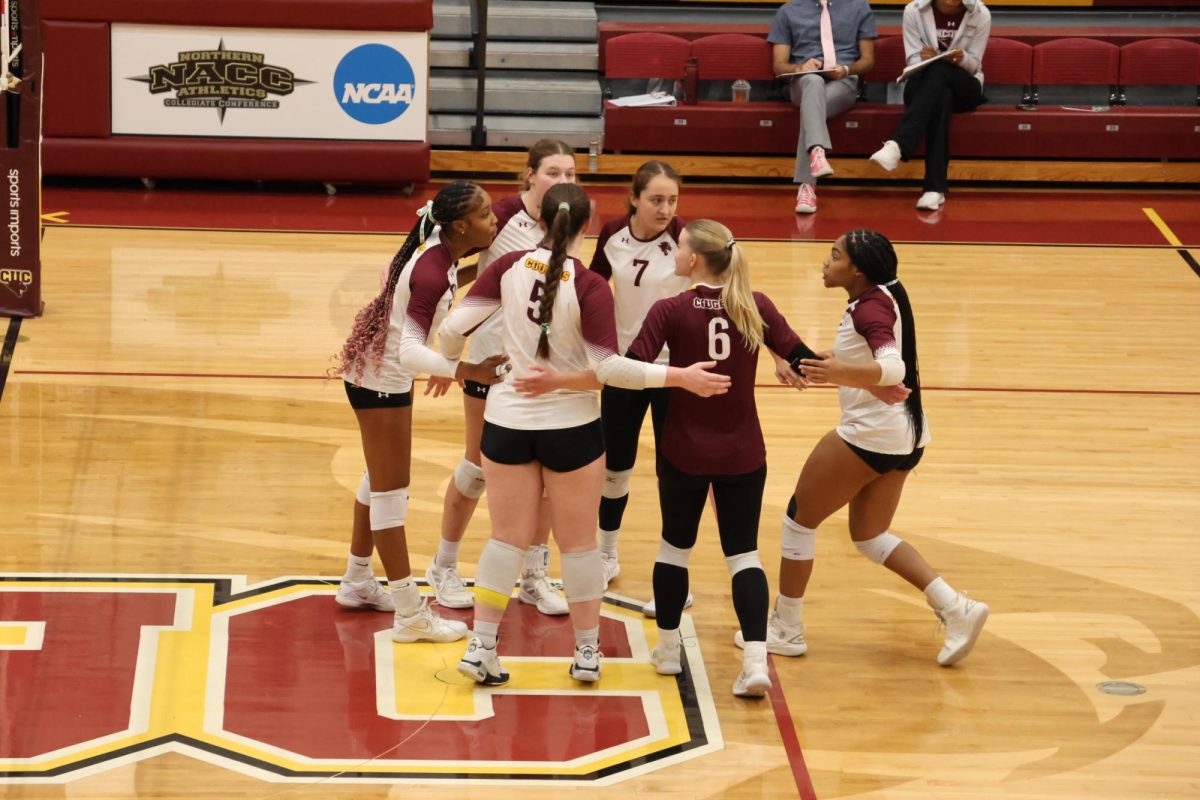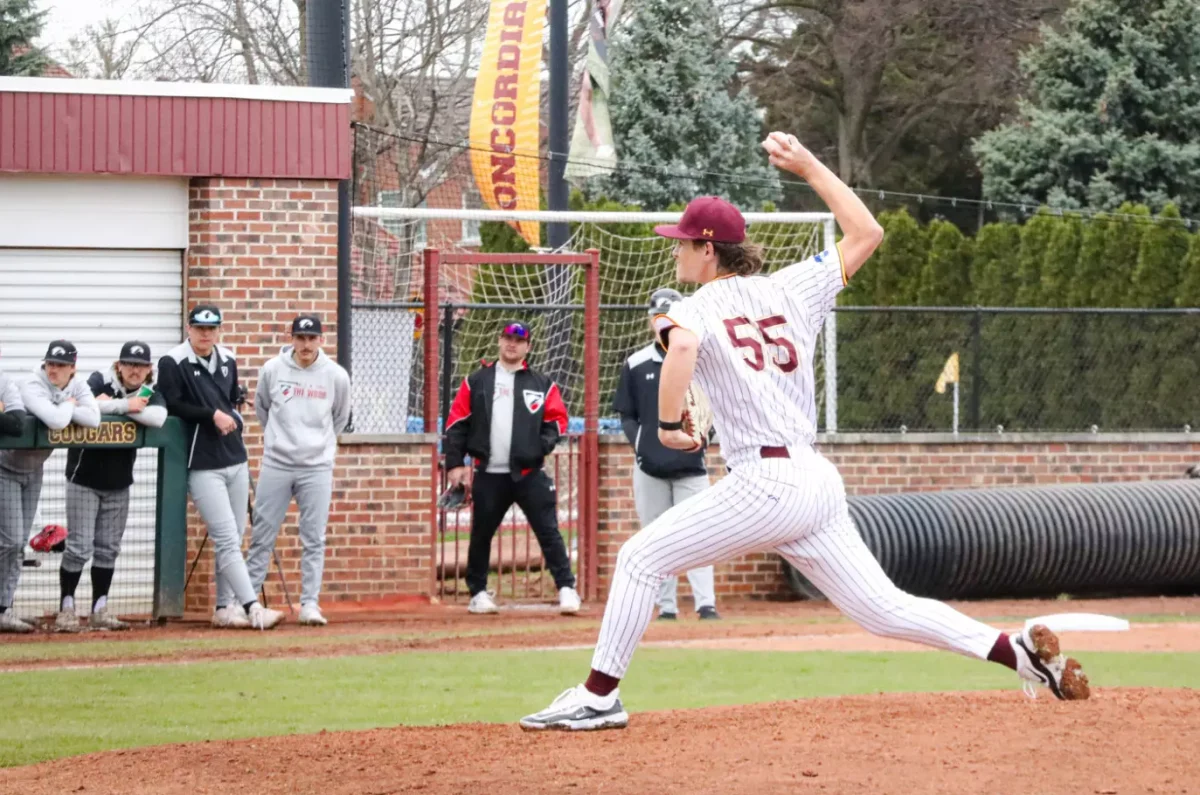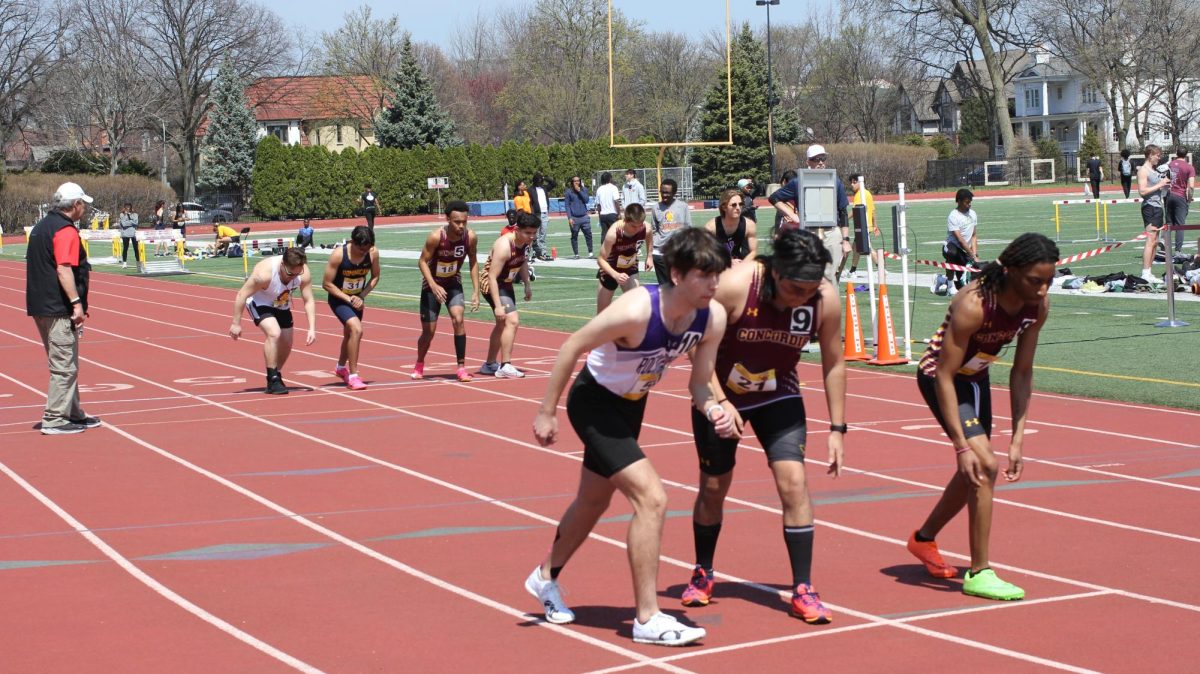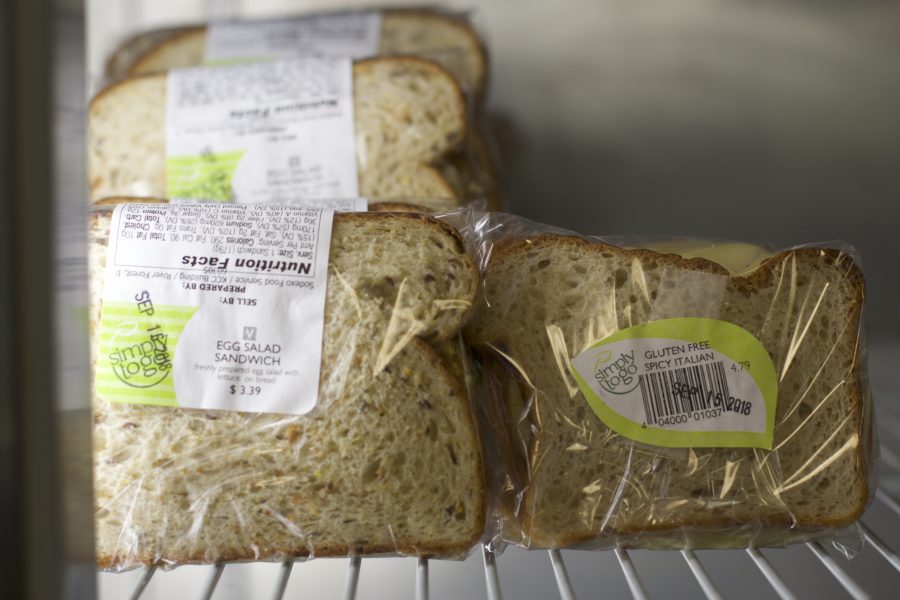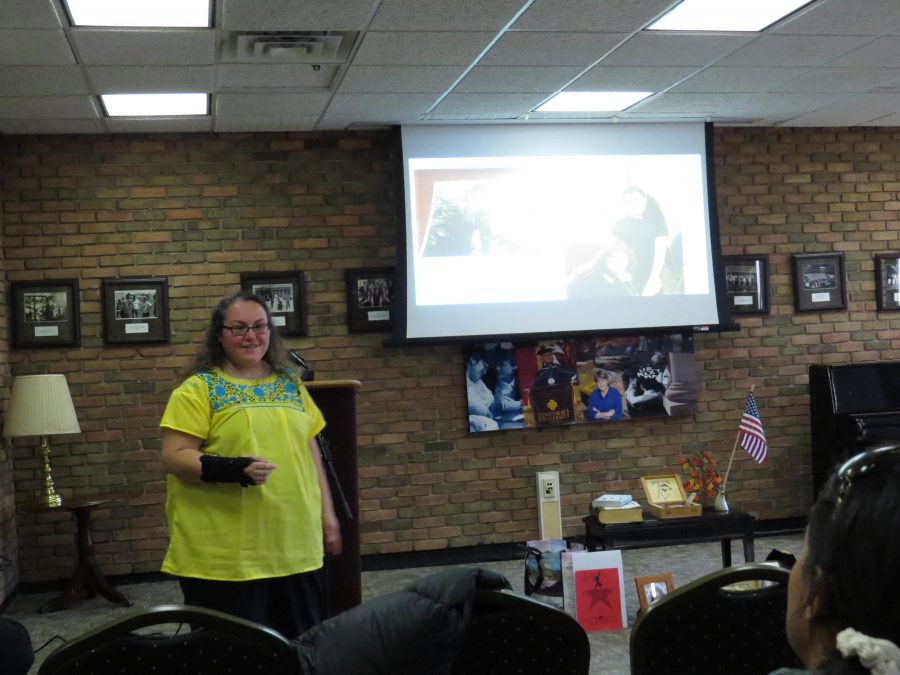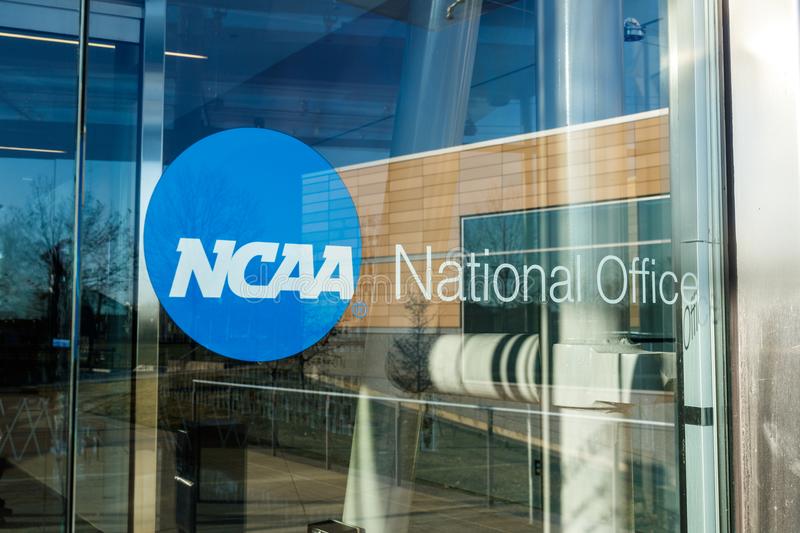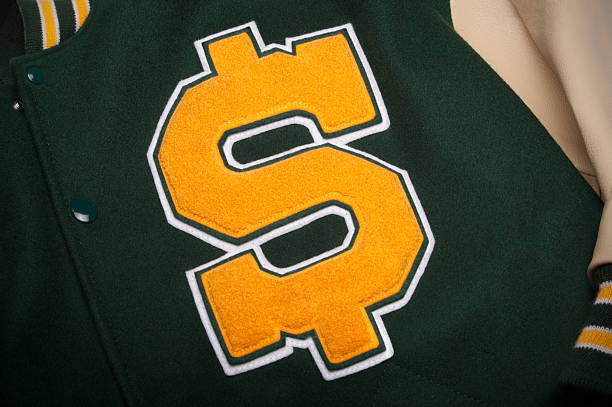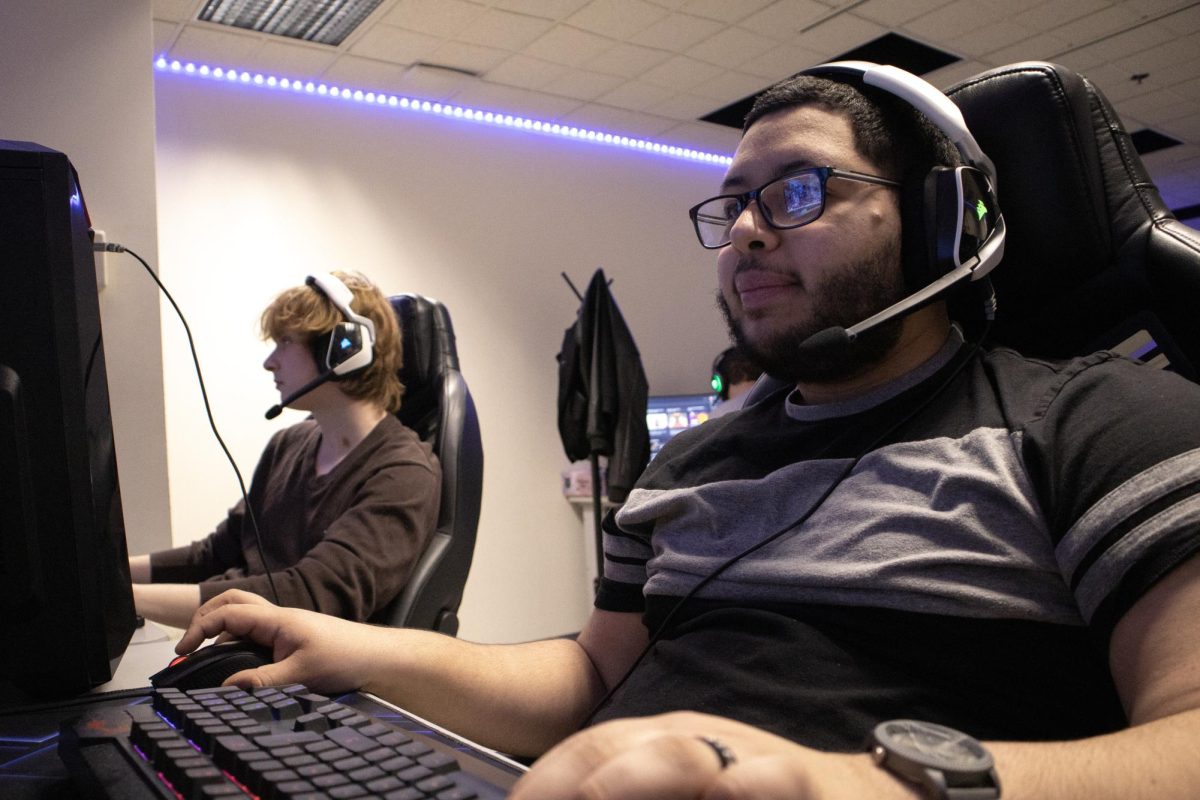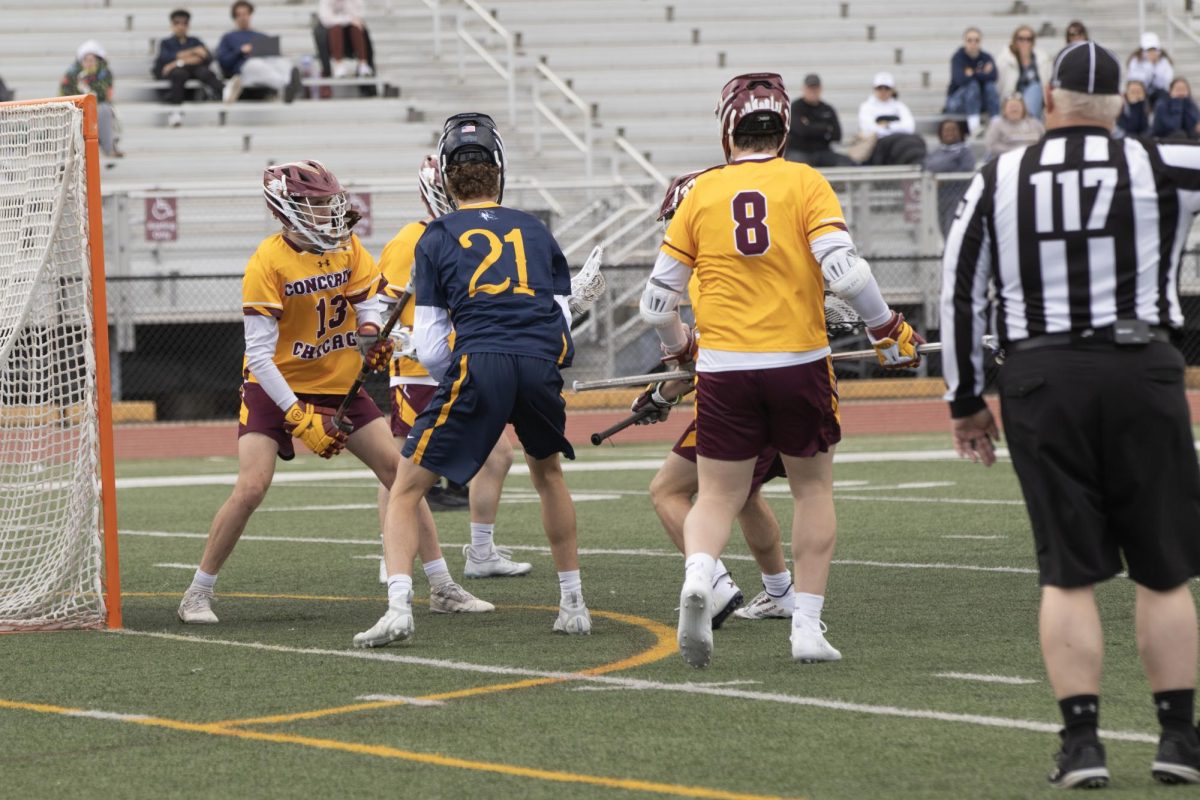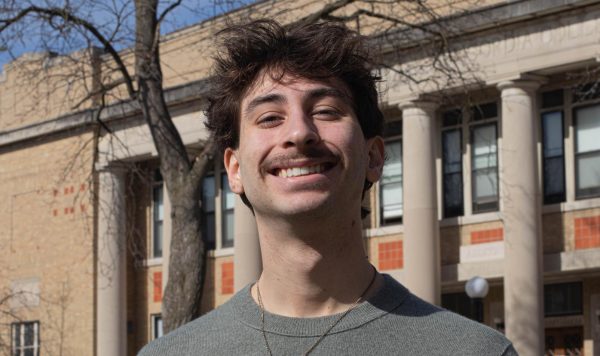In the corner of Krentz Center sits a hidden gem for students. Dim blue lights illuminate the room. Computer towers packed with popular games and powerful gaming hardware are stacked and aligned against the wall.
This is the Esports Lab, which opened in 2023.
The lounge is arranged for students who either want to leisurely game or who are interested in joining CUC’s competitive esports team. The space also provides a common area for gamers and students alike to coexist, slowly gaining popularity amongst students on campus.
Before this lounge, however, the esports team and club were congested into the basement of Krauss Hall, where numbers and publicity were low. Now the lab’s location in a well-trafficked ground-floor hallway in Krentz is increasing the visibility of computer gaming on campus.
“I would do homework here, I’d play video games here, and I would leave the door open, and people would walk by and see me and ask, ‘What is this?’” said Eduardo Hinds, former CUC esports vice president and an Overwatch player. “We got a few people interested that way. We didn’t have that back then.”
The gaming computers can be used by any student. Each one hosts numerous games that are popular in competitive “player versus player” modes, including Overwatch, Fortnite, Valorant, League of Legends, and Rocket League. In addition, the lab includes console devices like the Nintendo Switch, Xbox, and Wii, allowing students to play co-op games like Super Smash Bros, Mario Party, and Mario Kart.
“Those are all games that have tournaments going on, and they’re all games that we want to get teams going for,” Hinds said. “But we’re having such a hard time finding people for these teams.”
Esports has found it challenging to create an expansive roster for each computer game, making it difficult to compete if someone cannot show up for an event. For some games, the club can’t put together a team at all..
Despite the slow growth of esports at CUC, the esports team has been able to compete in its inaugural season. The esports competition system, however, is completely different from any other team on campus. Instead, they compete in the National Esports Collegiate Conference, in which dozens of schools participate, separated by region.
“There are two big esports organizations, the National Esports Collegiate Conference and the National Association Collection of Esports,” said Joshua Mol, head coach of esports. “There isn’t a Division I, II, or III, so there isn’t one main team out there, but we have different guidelines for qualifications to play.”
Because of this, no matter the game you love to play, the esports team encourages students to join the club, even if they play a console, a controller-based system like Xbox, Play Station and Switch, compared to PC, a mouse and keyboard-based system. The esports team offers coaching and practice that cultivates players’ ability no matter what system they play on before the team.
The esports teams compete in two different seasons, each with regional playoffs. If a team wins their playoffs, then they will receive a spot in the national tournament. Alternatively, they could receive enough points from their games throughout the season to make the tournament.
“If we win our split spring semester, we automatically qualify for nationals. The other way in is with point totals,” Mol said. “If we have enough points and if there’s a team that’s ineligible, we could get in if we get second place, maybe.”
Students can compete on the esports team no matter how much experience they have.
“I am a console player through and through, this my first time actually playing PC,” said Luis Cortes, an Overwatch team member. “But, if you’re also just a Switch player or console player or anything like that, it’s really nice just to be here on the computer.”
Ryan Murray, another Overwatch team member, saw gaming as just a hobby before he joined the team. “I never thought I would compete in sports or gaming, but I am here,” Murray said.
CUC’s esports team competing in the Overwatch section ended their season 5-4 record. On April 12, the team lost in the NECC playoffs to University of Wisconsin-Stevens Point.

